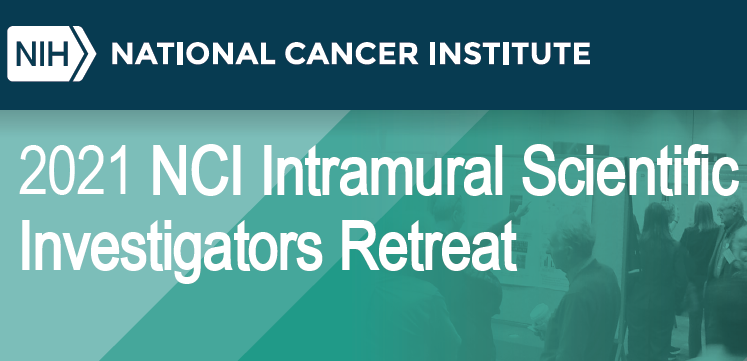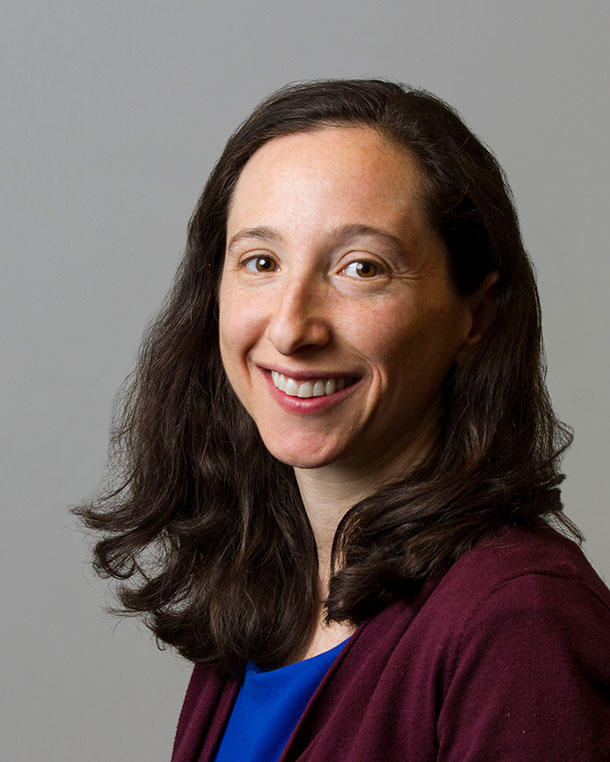2021 NCI Intramural Scientific Investigators Retreat, Highlights
In March 2021, investigators from the Division of Cancer Epidemiology and Genetics (DCEG) and the Center for Cancer Research (CCR) participated in the annual NCI Intramural Scientific Investigators Retreat, held virtually this year. Norman Sharpless, M.D., Director of the NCI, offered opening remarks, followed by a summary of the achievements of DCEG and CCR during 2020, presented by Stephen J. Chanock, M.D., DCEG Director, and Tom Misteli, Ph.D., CCR Director.
Douglas Stewart, M.D., senior investigator in the Clinical Genetics Branch of DCEG, gave an invited lecture entitled, “The End of DICER1: A Genome-first Public Health Strategy to Eliminate a Childhood Tumor-predisposition Disorder.” Dr. Stewart shared the podium with intramural colleagues who delivered the following lectures:
“New Opportunities in Natural Product Research”
Dr. Barry R. O’Keefe, Ph.D., Director of the Molecular Targets Program and Chief of the Natural Products Branch in CCR
“Microenvironmental Regulation of Metastasis,” and
Kandice Tanner, Ph.D., Head of Tissue Morphodynamics in the Laboratory of Cell Biology in CCR
“Nutrient Transporter Shifts Regulate Human Retroviral Infections and Hematopoiesis.”
Naomi Taylor, M.D., Ph.D., Head of the Pediatric Oncology Branch in CCR
Dr. Charles L. Sawyers, M.D., investigator at the Howard Hughes Medical Institute and Chair of the Human Oncology and Pathogenesis Program at Memorial Sloan Kettering Cancer Center received the 24th Annual Alfred G. Knudson Award Lecture in Cancer Genetics in Cancer Research, and delivered a presentation on “Lineage Plasticity in Oncogenicity and Resistance: Lessons from Prostate Cancer.”
Sara A. Courtneidge, Ph.D., D.Sc., professor of Cell, Developmental and Cancer Biology at Oregon Health & Science University, School of Medicine was the recipient of the 18th Annual NCI Rosalind E. Franklin Award Lecture for Women in Science, granted by the NCI Women Scientist Advisors. Her lecture was entitled “Invadopodia-mediated Effects on Both Invasive Behavior and the Tumor Immune Microenvironment.”
Sara Schonfeld, Ph.D., senior investigator in the Radiation Epidemiology Branch of DCEG, was recognized for her outstanding mentorship and awarded the NCI Women Scientist Advisors Mentoring and Leadership Award.
During the retreat, Dr. Chanock and Dr. Misteli recognized the 2021 NCI Director’s Innovation Award recipients. These awards are designed to support the development of novel approaches and technologies for accelerating cancer research. Principal Investigator Awards are given to tenure-track or recently tenured investigators (within the last five years), and Career Development Awards are given to postdoctoral fellows, staff scientists, staff clinicians, and senior scientists.
Seven DCEG scientists who received Innovation Awards this year are listed below:
Principal Investigator Awards
Maria Constanza Camargo, Ph.D., “Parasite serological profiling of patients with advanced gastric preneoplastic lesions”
Jiyeon Choi, Ph.D., “Single-cell eQTL profiling of normal lung in Asian never-smokers for functional characterization of lung cancer risk-associated genomic loci”
Career Development Awards
Jongeun Rhee, Sc.D., “Serum levels of per- and polyfluoroalkyl substances (PFAS) and thyroid cancer risk in the Prostate, Lung, Colorectal and Ovarian Cancer Screening Trial"
Katelyn Connelly, Ph.D., “Examining the interplay between PDAC risk loci and cellular stress responses"
Minkyo Song, M.D., Ph.D., “Autoantibody immunoproteomic microarray for cancer-associated autoimmune diseases”
Monica D’Arcy, Ph.D., “A network analysis approach to understanding never-smoking lung cancer risk factors”
Rohit Thakur, Ph.D., “Spatial fine mapping of ultraviolet radiation-responsive melanoma susceptibility and pigmentation loci”


